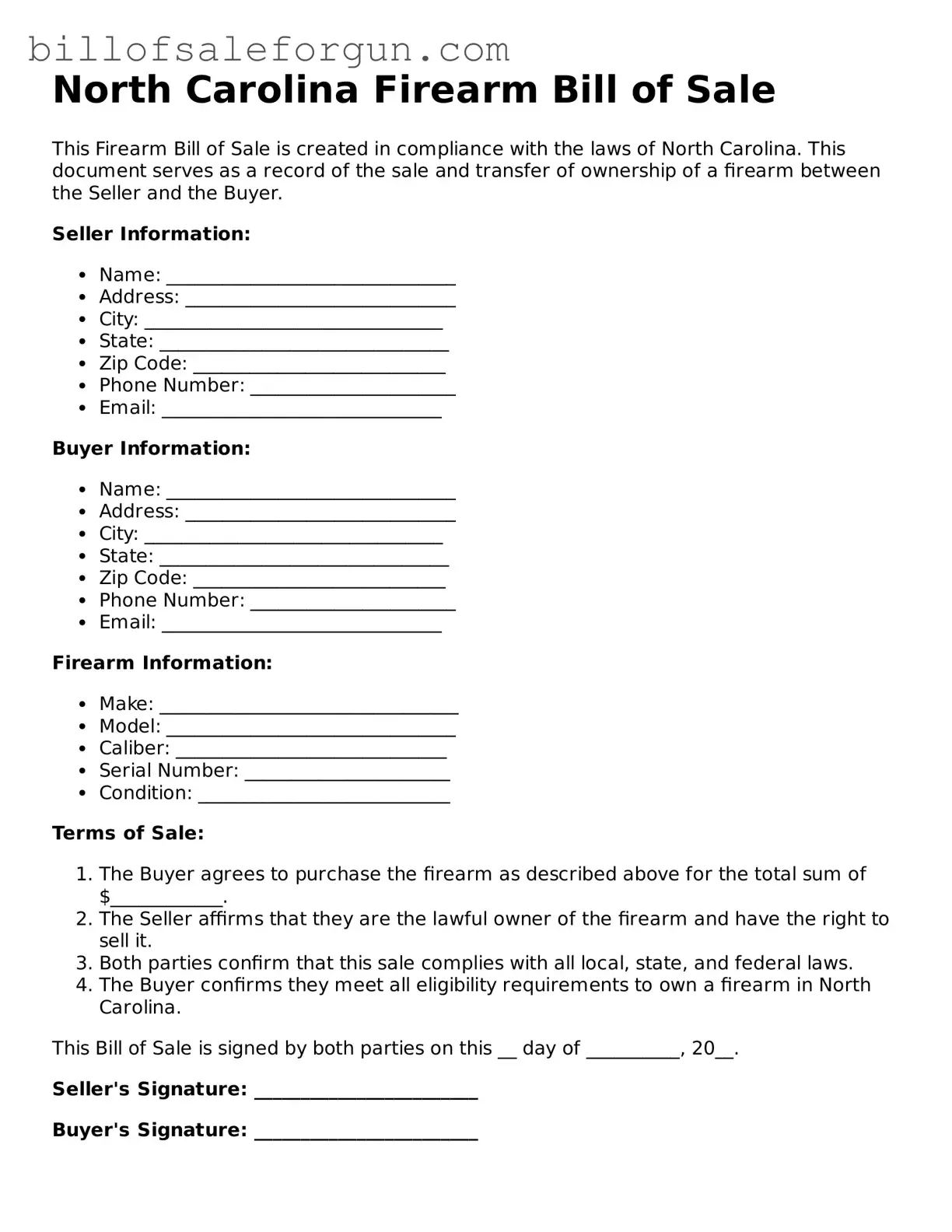Similar forms
The North Carolina Firearm Bill of Sale form shares similarities with a Vehicle Bill of Sale. Both documents serve as proof of transfer of ownership from one party to another. They include details such as the buyer's and seller's information, a description of the item being sold, and the purchase price. Just as with firearms, the sale of vehicles requires proper documentation to ensure legal compliance and to protect both parties in the transaction.
Another document akin to the Firearm Bill of Sale is the Boat Bill of Sale. This form also records the transfer of ownership, specifying the buyer and seller's details, the boat's description, and the sale amount. Both documents help establish a clear chain of ownership, which can be crucial for future registrations or legal matters related to the item.
The Personal Property Bill of Sale is another similar document. It is used for various types of personal property, including furniture, electronics, and collectibles. Like the Firearm Bill of Sale, it outlines the buyer and seller's information, a description of the item, and the sale price. This document serves to protect the interests of both parties involved in the transaction.
A Lease Agreement can also be compared to the Firearm Bill of Sale in that both involve a transfer of rights, albeit temporarily in the case of a lease. While a Bill of Sale signifies a permanent transfer of ownership, a lease outlines the terms under which one party can use another's property. Both documents require clear identification of the parties and the property involved.
The Rental Agreement is similar in that it documents the terms of renting an item, which can include firearms in certain contexts. This agreement specifies the rights and responsibilities of both the renter and the owner. While it does not transfer ownership, it establishes a formal understanding between the parties regarding the use of the property.
The Warranty Deed is another document that resembles the Firearm Bill of Sale. While it typically pertains to real estate, it serves to transfer ownership and includes important details about the property and the parties involved. Both documents ensure that ownership is clearly documented and can be referenced in future legal situations.
The Assignment of Contract is similar in that it involves the transfer of rights from one party to another. This document is often used in business transactions but can apply to personal property as well. Both the Assignment of Contract and the Firearm Bill of Sale require clear identification of the parties and the items being transferred.
Lastly, the Promissory Note can be compared to the Firearm Bill of Sale in that it documents a financial transaction. While a Bill of Sale is focused on the transfer of ownership, a Promissory Note outlines a promise to pay a certain amount. Both documents are important for establishing legal rights and responsibilities between the parties involved.
